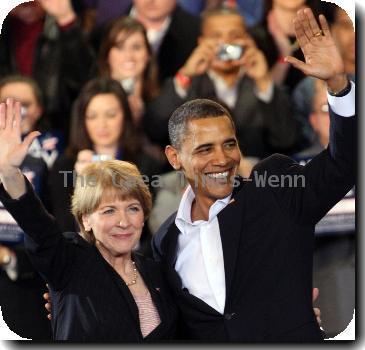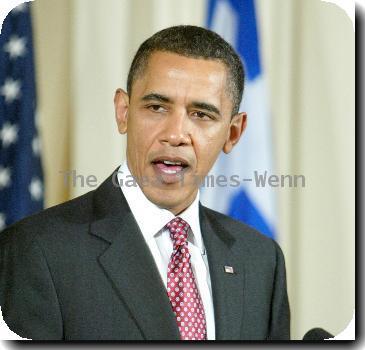Blagojevich defense redraws government image of him as crook to one who got played for a fool
By Mike Robinson, APMonday, June 14, 2010
Pictures of Blagojevich: a crook or a fool?
CHICAGO — Was Rod Blagojevich a crook? Or was he merely a bumbler, a goof — naive, trusting and played for a fool by cynical campaign fundraisers and political fixers?
Some who know him will have trouble swallowing the idea of Blagojevich, a veteran state lawmaker and congressman who was elected Illinois governor twice, as the all-American chump.
He spent years climbing the political ladder, his career guided by his father-in-law, Richard Mell, an old-school Democratic ward committeeman who goes back to the Chicago Machine.
But a defense theme that has emerged at his racketeering and fraud trial, which resumes Monday, is just that — he simply didn’t know what was going on all around him.
A fool or a knave? Definitely the former, according to the pictures his lawyers are drawing.
“If this guy is a crook, he’s the most naive and stupid crook you ever met,” is how DePaul University law professor Leonard Cavise sums up a good portion of defense attorney Sam Adam Jr.’s dramatic opening statement.
Experts say that strategy can be effective with some juries — but it can also present some tricky problems.
Prosecutors say there were plans to leverage the power of the governor’s office into a moneymaking enterprise, and that it involved Blagojevich, top campaign fundraiser Tony Rezko, fundraiser Chris Kelly and the governor’s chief of staff, Alonzo “Lon” Monk.
Adam, in his opening statement, heaped an overwhelming bulk of the blame on Rezko.
“The theme of this trial so far is Rezko and the three stooges,” says Roosevelt University political scientist Paul Green, who has been watching Blagojevich since his start in politics.
Rezko is awaiting sentencing for fraud and other offenses in connection with a $7 million kickback scheme. He was convicted in June 2008 and may testify at the Blagojevich trial. Monk pleaded guilty to conspiring to pressure a racetrack owner for contributions and is testifying in hopes getting a lighter sentence. Kelly committed suicide last year, days before he was to report to prison for an unrelated tax conviction.
In his revival meeting-style opening, Adam portrayed Blagojevich as blissfully ignorant while Rezko tangled his administration in an ugly web of corruption.
“The Bernie Madoff of Chicago fooled everybody, with all due respect, governor, including you,” Adam told jurors.
Stuart Levine, who pleaded guilty to launching the kickback scheme, was just as bad, he said.
“The king of sleaze knighted Stuart Levine,” Adam thundered. “Sir Stuart Levine.”
Where was Blagojevich all this while? The governor, Adam said, was too busy studying the big picture to notice what was happening.
Blagojevich, 53, has pleaded not guilty to scheming to get a massive payoff — huge campaign money or possibly a high-paying job after leaving the governor’s office — in exchange for filling the U.S. Senate seat that Barack Obama left following his November 2008 election as president. He has also pleaded not guilty to launching a racketeering scheme in the governor’s office.
If convicted, he could be sentenced to up to 415 years in prison, though a judge would consider many factors. Blagojevich also could face fines totaling $6 million.
His brother, Robert Blagojevich, 54, a Nashville, Tenn., businessman, has pleaded not guilty to taking part in the alleged scheme to sell the Senate seat and to conspiring to pressure the racetrack owner for campaign cash.
The strategy of claiming to be naive — but not corrupt — has worked with some juries, experts say.
But criminal defense attorney Robert W. Clarke warns that Blagojevich’s defense team had better watch out for “the ostrich instruction,” which may be among the guidelines the judge gives jurors before they start deliberations.
“It tells the jury, look, you can’t say you stuck your head in the sand when all this was going on around you in obvious fashion,” says Clarke. “If they try that, the prosecutors may seek that instruction. The defense had better be sure that they’re not inviting it.”
The image of Blagojevich as unwitting dupe may actually have been reinforced on Thursday while Monk — a prosecution witness — was testifying.
Monk admitted that Rezko slipped him envelopes that usually contained $10,000 in cash seven to nine times while he was chief of staff. Assistant U.S. Attorney Chris Niewoehner asked if he had told Blagojevich. He said he had not — because the governor wouldn’t have approved.
“This is gold for the defense,” Cavise said. “Rod gets to sit back and say, ‘Gee, these guys were really crooks — I had no idea.”
Monk, a sports agent when Blagojevich brought him into his group of close advisers, had no experience in politics or government but soon ended up as chief of staff to the governor.
“The governor had horrible judgment,” he told jurors.
Longtime Chicago defense attorney John Beal says there is another danger in trying to play dumb. If the government’s evidence over the whole trial reveals Blagojevich as street smart after all, he says, it will clash with the defense claim that he didn’t know what was going on. Making him look insincere like that could be off-putting to jurors.
FBI wiretap tapes of Blagojevich — the first of which were played for jurors Thursday — could be that kind of hindrance. He was heard in a nasty, crabby tone ordering members of his inner circle to get more and more campaign money.
But Beal says the 18 months Blagojevich spent making television appearances such as on “Celebrity Apprentice” may have created an image that would reinforce his professed naivete.
“If they can portray him as something of a nut, then this delusional aspect might work,” says Beal. “Kind of a goof rather than a scheming, calculating, smart crook.”
Tags: Barack Obama, Campaigns, Chicago, Executive Branch, Fraud And False Statements, Illinois, North America, Political Corruption, Political Fundraising, Political Issues, Racketeering, United States




